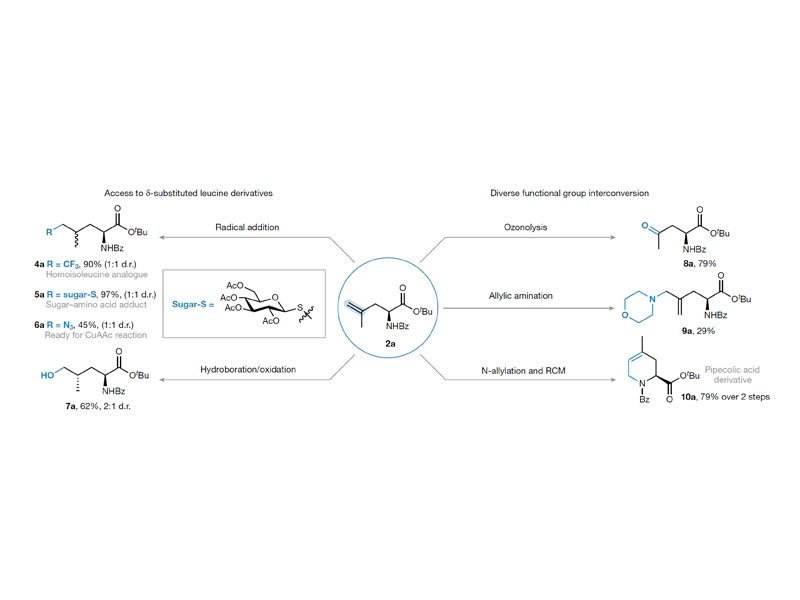
Synthesis of non-canonical amino acids through dehydrogenative tailoring

Synthesis of non-canonical amino acids through dehydrogenative tailoring
Xin Gu, Yu-An Zhang, Shuo Zhang, Leon Wang, Xiyun Ye, Gino Occhialini, Jonah Barbour, Bradley L. Pentelute & Alison E. Wendlandt
Abstract
Amino acids are essential building blocks in biology and chemistry. Whereas nature relies on a small number of amino acid structures, chemists desire access to a vast range of structurally diverse analogues1,2,3. The selective modification of amino acid side-chain residues represents an efficient strategy to access non-canonical derivatives of value in chemistry and biology. While semisynthetic methods leveraging the functional groups found in polar and aromatic amino acids have been extensively explored, highly selective and general approaches to transform unactivated C–H bonds in aliphatic amino acids remain less developed4,5. Here we disclose a stepwise dehydrogenative method to convert aliphatic amino acids into structurally diverse analogues. The key to the success of this approach lies in the development of a selective catalytic acceptorless dehydrogenation method driven by photochemical irradiation, which provides access to terminal alkene intermediates for downstream functionalization. Overall, this strategy enables the rapid synthesis of new amino acid building blocks and suggests possibilities for the late-stage modification of more complex oligopeptides.



